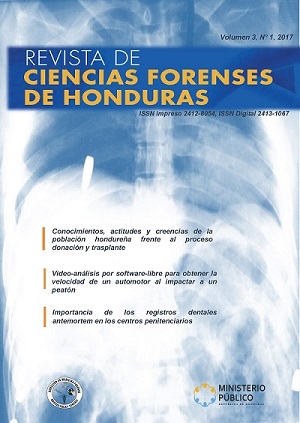Role of the Medical examiners in organ donation and in organ transplantation. A literature review
Keywords:
Transplant, Donation, Honduras, Cadaveric donor, Living donor, Medical examiner, Honduran legal framework, Bibliographic reviewAbstract
In the past 50 years, the practice of transplant medicine has been adopted as the first therapeutic option for a growing number of organic diseases. The parallel development of advanced forms of care in critically ill patients, and the need for organs for transplantation, forced an expedited review of the criteria for defining death. Various ethical questions arise about connection with the allocation of cadaveric organs for transplantation. These discussion points have become exceptionally important in light of high demand for organs for transplantation. This article discusses the importance of the of the medical examiner’s role in donation and organ transplantation. A comparison between the old and current Honduran legislation for organ and tissue transplantation is provided, which illustrates the progress made in Honduras regarding this subject.
Downloads
250
EPUB (Español (España)) 122
HTML (Español (España)) 220
Published
How to Cite
Issue
Section
License
El autor conserva los derechos de autor bajo los terminos de una licencia CC NC 4.0





